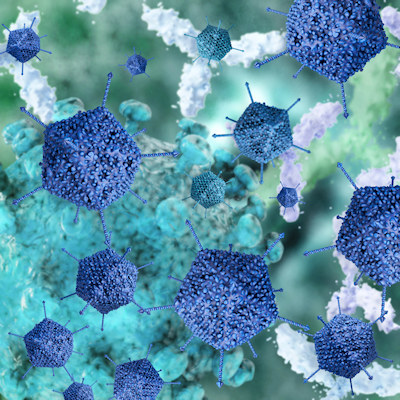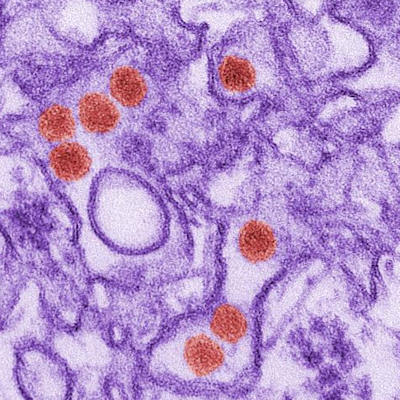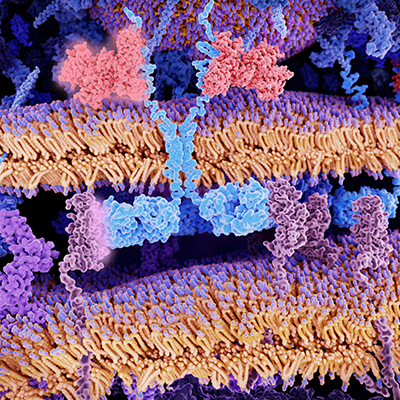 Researchers further understanding of how circadian clock helps brain recover after injury
Researchers further understanding of how circadian clock helps brain recover after injury
Children’s National Hospital researchers have found that a relatively newly discovered type of brain cell -- known as NG2-glia -- also follows a circadian rhythm, findings that potentially open new paths of investigation for the development of future traumatic brain injury therapies. Read More
 Demand for viral vectors seen outpacing capacity growth despite investment surge
Demand for viral vectors seen outpacing capacity growth despite investment surge
The growth in demand for viral vectors is outpacing a push to add capacity, leading to predictions that the current supply shortage will continue despite investment in the space. Read More
 Single-cell sequencing reveals spatial map of immune cells in early-stage lung cancer
Single-cell sequencing reveals spatial map of immune cells in early-stage lung cancer
Using single-cell sequencing, researchers at the University of Texas MD Anderson Cancer Center have revealed a spatial map of tumor-infiltrating B cells and plasma cells that are prevalent in early-stage lung cancers, providing a basis for finding new immunotherapy targets. Read More
 Genomics profiling reveals how Zika infects immune cells, suggests antiviral target
Genomics profiling reveals how Zika infects immune cells, suggests antiviral target
A genomics profiling method has revealed how the Zika virus infects human dendritic cells, pointing to a potential target for therapeutic suppression of the pathogen. Read More
 New type of CAR T cells provide on-off switch to improve cell therapy safety, efficiency
New type of CAR T cells provide on-off switch to improve cell therapy safety, efficiency
Researchers at Boston University have created on and off switches for chimeric antigen receptor (CAR) T cells, enabling them to control the activity of therapies using an approved drug. Read More
 Penn State-led team develops more efficient system for delivering CRISPR to stem cells
Penn State-led team develops more efficient system for delivering CRISPR to stem cells
Modified mRNA (modRNA)-based CRISPR systems improve on the transfection and knockout efficiency of plasmid-based systems in human pluripotent stem cells (hPSCs), a Penn State-led team of interdisciplinary researchers has found. Read More
 Akadeum looks to advance the cell separation process with microbubbles
Akadeum looks to advance the cell separation process with microbubbles
Microbubble technology offers researchers the ability to perform cell separation without a column or magnet, generating higher yield and faster turnaround times, according to Akadeum Life Sciences CEO Brandon McNaughton who spoke with ScienceBoard.net about the company's technology. Read More
 Multiomics analysis reveals potential opportunity for early intervention in Alzheimer’s
Multiomics analysis reveals potential opportunity for early intervention in Alzheimer’s
A gene that carries a strong risk for Alzheimer’s disease drives changes in the brain’s blood vessels that lead to problems in synapses and ultimately cognitive dysfunction, according to a study in mice. Read More
 Stem cell-derived embryos open door to study of developmental health, disease
Stem cell-derived embryos open door to study of developmental health, disease
Researchers have created synthetic embryos with a brain, beating heart, and the foundations of other organs from mouse stem cells, helping to understand why some embryos fail while others go on to develop into a fetus as part of a healthy pregnancy. Read More
 CRISPR reveals way to enhance the function, persistence of CAR T-cell therapies
CRISPR reveals way to enhance the function, persistence of CAR T-cell therapies
The use of CRISPR knockout screens have uncovered a new regulator of immunity that could enhance the function and persistence of anticancer T-cell therapies, according to a study published on August 24 in the journal Nature. Read More
Conferences
Science Briefs
Member Rewards
Earn points for contributing to market research. Redeem your points for merchandise, travel, or even to help your favorite charity.
Research Topics
Interact with an engaged, global community of your peers who come together to discuss their work and opportunities.
Connect
Tweets by @ScienceBoard






